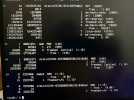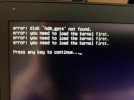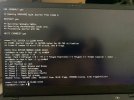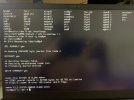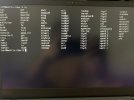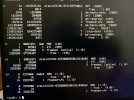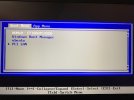I managed to successfully install FreeBSD 13. I was then experimenting with Gnome, KDE and xfce only to experience Firefox failed to launch because of missing libc.so.7. One simple solution I found on the Internet was to upgrade FreeBSD with executing freebsd-update fetch. I ran this update command and it stuck for minutes. I stopped the process with intention to retry it, but boot was already failed. It is just a frozen black screen, I can't access the terminal.
I am on the brink of depression. Please help. SOS. What should I do to get FreeBSD back? Or rollback procedure may helps? Thanks.
I am on the brink of depression. Please help. SOS. What should I do to get FreeBSD back? Or rollback procedure may helps? Thanks.

